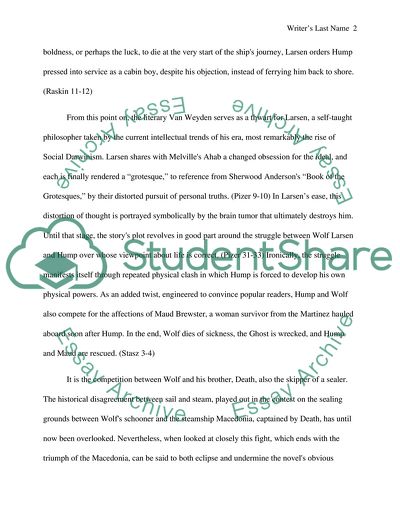Cite this document
(Novels And Social Writing Of Jack London Case Study, n.d.)
Novels And Social Writing Of Jack London Case Study. Retrieved from https://studentshare.org/literature/1730598-the-sea-wolf-by-jack-london
Novels And Social Writing Of Jack London Case Study. Retrieved from https://studentshare.org/literature/1730598-the-sea-wolf-by-jack-london
(Novels And Social Writing Of Jack London Case Study)
Novels And Social Writing Of Jack London Case Study. https://studentshare.org/literature/1730598-the-sea-wolf-by-jack-london.
Novels And Social Writing Of Jack London Case Study. https://studentshare.org/literature/1730598-the-sea-wolf-by-jack-london.
“Novels And Social Writing Of Jack London Case Study”, n.d. https://studentshare.org/literature/1730598-the-sea-wolf-by-jack-london.


